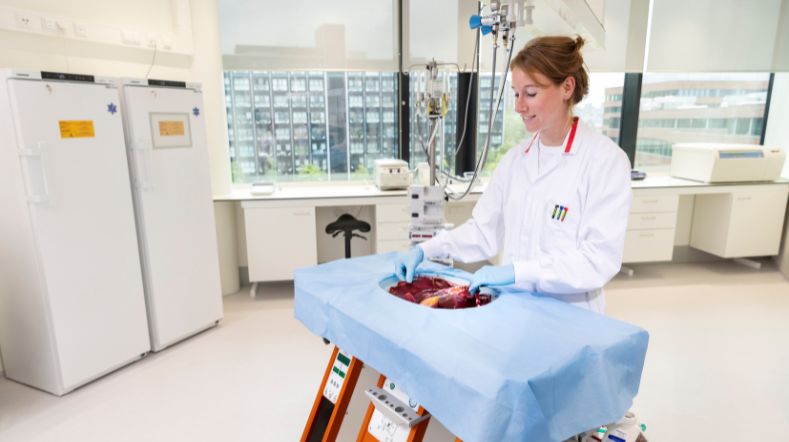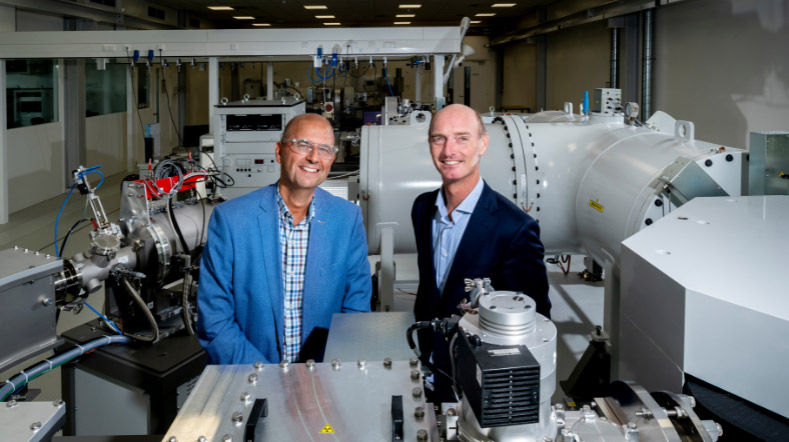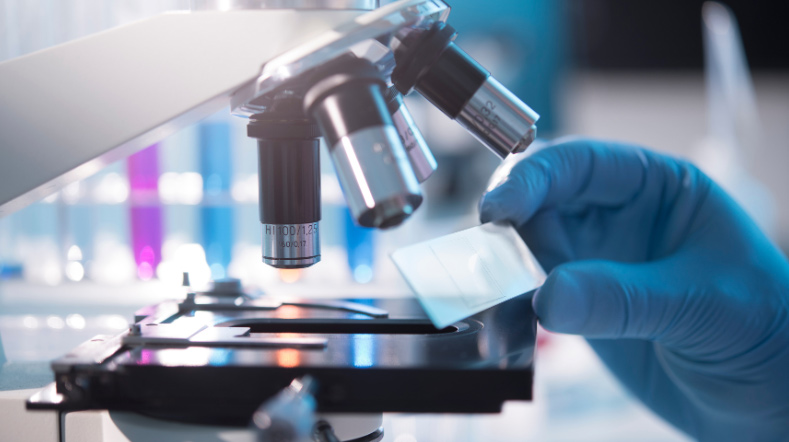
Efficient drug development through better insights into functional biomarkers
Functional biomarkers are objective measurements that reflect the process and progression of a disease, and the effect of drug intervention. They enable everything from earlier, more accurate disease diagnosis to accelerated drug development to precision patient selection for clinical trials. TNO offers unmatched expertise in the (in silico) identification, development, validation, implementation, and analysis of functional biomarkers for preclinical and clinical applications.
Miniaturisation to increase impact
One of TNO’s greatest strengths is our expertise in biomarker analysis. Our current technologies require very small sample sizes, making them ideally suited not only for minimally invasive clinical study, but also for preclinical studies. TNO is also currently miniaturising assays to reduce blood volumes to less than 3ml/biomarker, for studies in infants and the elderly, but this can also be applied in rodent models. We are also developing novel technologies for small blood sample handling (5 to 20ml) that do not require centrifugation or cooling, enabling at-home studies or studies in non-laboratory settings, such as for environmental toxicology, military settings, and more.
Novel technology for deeper insight
TNO applies its experience in advanced biomarker platforms, and its unique (pre)clinical tissue and blood biobanks in studies for our pharmaceutical, nutritional, and CRO partners. Together, we aim to accelerate drug development, substantiate nutritional treatments and improve patient care. This reduces costs and time in the development process, and improves disease prediction and prognosis. Among the technologies available, we offer:
Our liver fibrosis biomarker panel can be used to rapidly diagnose the individual stages of fibrosis (F0-F4) in patients with metabolic dysfunction-associated steatohepatitis (MASH). The panel utilises serum samples, eliminating the need for liver biopsy for diagnosis. This not only accelerates disease detection, but can enable the accurate identification of patients in each stage for clinical trials.
In our efforts to improve the translatability of preclinical efficacy models, we have developed and validated novel biomarker sets for in vitro, ex vivo, and in vivo preclinical studies. These sets inform on organ-specific disease processes (e.g., vascular inflammation, hepatic inflammation, inflamed adipose tissue, etc.) or critical organ function (e.g., hepatic de novo lipogenesis, gut leakage, mitochondrial dysfunction, oxidative stress, neuronal death, muscle health, etc.). We also have biomarker sets that can indicate susceptibility for the development of disease, including lipid biomarkers for cardiovascular disease and immune biomarkers for respiratory distress syndrome and Long Covid.
We have established validated and robust analytical panels for simultaneous measurement of multiple readouts, including protein multiplex, lipidomics, and metabolomics. This provides even more accurate translation from preclinical to clinical read-outs and informs on entire disease pathways. We have also established generic metabolomics panels to profile short chain fatty acids, bile acids, tryptophan metabolism, or biogenic amines, amongst others. These are also relevant for functional studies of single microorganisms and for microbiota studies.
Among other possibilities, we can develop biomarker analyses in fecal samples (e.g., immune profiling in infant nutrition studies), saliva samples (e.g., stress and inflammation readouts incl. cortisol, cytokines), and breast milk (e.g., immune health, cytokines). Most of TNO’s functional biomarkers can also be measured in organ or tissue homogenates of, for instance, specific regions of the brain (e.g., hippocampus), the gut, or liver tissue. Matrix effects for the various organs were determined and biomarker analyses can thus be performed very rapidly. Also, all listed functional assays can be used for in vitro studies (e.g., primary hepatocytes, stellate cells).
Using 14C tracer compounds and AMS technology, TNO has established many functional biomarkers to measure metabolic fluxes very accurately. Among the unique assays is a flux assay for de novo lipogenesis (14C-acetate is incorporated into C16:0 and then secreted as VLDL) and de novo cholesterol synthesis, as well as reverse cholesterol transport (via HDL) and other assays to measure lipid metabolism fluxes.
Future focus
TNO is constantly developing and improving techniques and technologies to further accelerate biomarker applications. Among other topics, we are currently exploring biomarker identification for muscle loss, gut hormone release from fresh human gut tissue, and inflammatory marker analysis in human 3D epidermal cells and primary human 3D liver cells. Building on our work in developing predictive biomarkers for fibrosis in MASH, we are exploring the ways to predict future fibrosis development in other organs (e.g., lung, kidney, and heart).
Partnering for acceleration
TNO is eager to partner with specialists in research and development, pharmaceutical and nutraceutical development or (clinical) CROs eager to optimise their functional biomarker assays. From clinical validation of biomarker panels to developing novel biomarkers to track disease risks such as endometriosis or dementia. From assay development and analytical labs to clinical studies in need of support. From utilising our existing panels and data to exploring other organ systems. Whether in public or private partnerships, one-to-one co-development studies or other collaborations, we are eager to put our functional biomarker expertise to work for you. Get in touch today.
Get inspired
Testing medicines outside the body: intestinal–liver–kidney model accelerates drug development


Preclinical ADME


TNO launches Peregrion to boost market impact of its technology that accelerates medicine development


PPP uncovers new insights into MASLD development


Translational preclinical efficacy models





